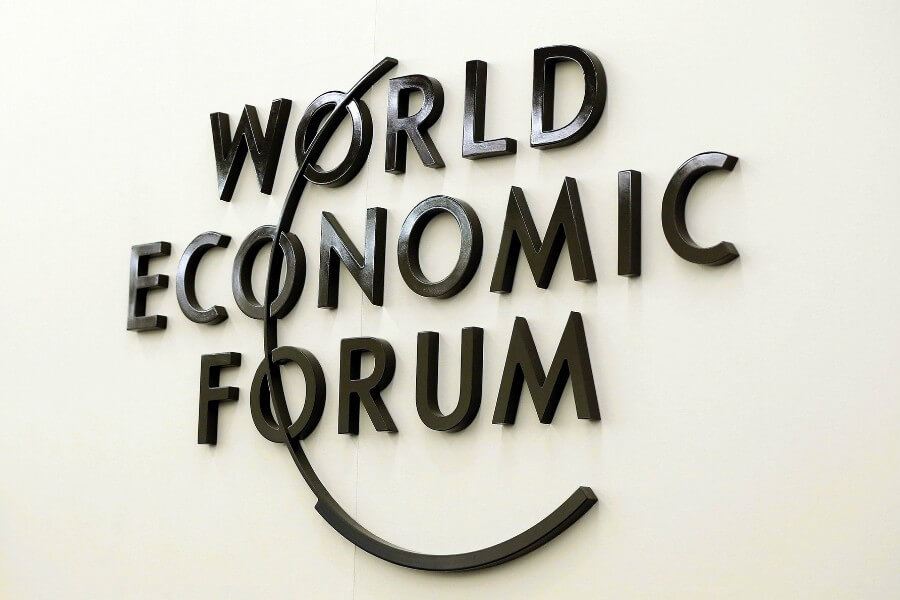2019 Davos conference held to talk about corporate leadership in the fourth industrial revolution

From January 22 to 25, 2019, the 4-day 2019 World Economic Forum was held in Davos, Switzerland.
According to the official website of the World Economic Forum, the theme of this year’s Davos Forum is “Globalization 4.0: Shaping the Global Structure in the Age of the Fourth Industrial Revolution“, mainly based on two reasons: first, this is a critical period for global cooperation, globalization has failed to continue to improve living standards, and populism and nationalism are spreading; second, the high-tech digital revolution is forming a new Waves of change hit humanity.
Focusing on this theme, this forum will hold more than 350 sub-forum meetings, focusing on geopolitics, conceptual diversity and peaceful mediation, the future of the global economy and financial and monetary systems, industrial systems and technology policies, cybersecurity and risk recovery, and human resources. A “global dialogue” will be launched on the six major topics of capital and social narrative, institutional reform and economic cooperation. More than 3,000 global elites from 115 countries and regions are expected to attend the conference, including more than 70 heads of state, heads of government, heads of important international organizations and business people.
According to reports, Chinese Vice President Wang Qishan will attend the forum. U.S. President Trump, British Prime Minister Theresa May, and French President Emmanuel Macron have all canceled their trips to Davos because they have to deal with the U.S. government shutdown and the U.K. Turbulent domestic political situations such as Brexit and civil unrest in France.
On January 22 at the Business Leadership in the Fourth Industrial Revolution sub-forum, SAP CEO Bill McDermott, Hitachi CEO Hiroaki Nakanishi, IBM CEO Ginni Rometty and Procter & Gamble CEO David Taylor discussed how to harness the fast At the same time as the changing technological and political environment, how business leaders can better serve all stakeholders and other related topics will be discussed. This forum is chaired by Roula Khalaf, deputy editor-in-chief of FT.
Just like the steam engine was to the first industrial revolution, electricity was to the second industrial revolution, and digitalization was to the third industrial revolution, intelligent transformation driven by artificial intelligence is triggering the fourth industrial revolution. Ginni Rometty pointed out that the Fourth Industrial Revolution has left many feeling disenfranchised and left behind by the times, and that concerns about the skills gap are real.
“When we talk about a skills crisis, I do believe 100 percent of jobs will change,” Ginni Rometty said. She doesn’t think this crisis is impossible to overcome, and hopes that a new model of education and careers will emerge in the future:New collar, not the blue or white collar of the past.
The emergence of new technologies will naturally bring about a huge problem of tolerance. So what role should leaders play in such times?
“It’s important for companies to have some clarity and transparency with a broad stakeholder base,” says Ginni Rometty.
Bill McDermott believes that leaders must be more responsible for the changes and insecurities people face, and can first-hand understand the impact of automation on them.
“We have to build solutions that help companies and countries navigate rough waters.” McDermott said tech companies are by definition global, so it’s important to think outside the box when it comes to hiring models. At present, SAP is also digging for needed talents all over the world.
While the world is more connected, it has to be acknowledged that society has become more fragmented than ever. Data show that public trust in business, government and nonprofits is at an all-time low. This gap between what people want and what they expect is called a “trust deficit.”
“Trust is at a tipping point,” UN Secretary-General António Guterres said at the opening of the 73rd session of the UN General Assembly in September. “Trust among state institutions, trust between states, and trust in a rules-based global Trust in order. Inside the country, people are losing faith in political institutions, polarization is on the rise, and populism is on the march.”
McDermott said,To make progress, we cannot just put the burden of reform on the agenda of global conferences, we need every leader who favors action, and the only right way to restore trust is to put people first.
Beyond simple listening, leading organizations can demonstrate tangible transformations in which individuals experience tangible improvements in their abilities. McDermott noted: “If we do this, we will also demonstrate that the gap is not as large as humans fear, and will show that each human has the potential to change the future, because our experience must shape our perspective.”
The World Economic Forum (World Economic Forum) is an unofficial international organization with the purpose of researching and discussing problems in the world economy and promoting international economic cooperation and exchanges, headquartered in Geneva, Switzerland. Its predecessor was the “European Management Forum” founded in 1971 by the current chairman of the forum, Professor Klaus Schwab of the University of Geneva.
In 1987, the “European Management Forum” was renamed the “World Economic Forum”. Forum members are more than 1,000 top companies that abide by the forum’s purpose of “committed to improving the global situation” and affect the future economic development of the world. Since it was first held in the Swiss town of Davos, it will also be called the “Davos Forum” in the future.
The Links: 3HNA006387-001 3HAC057546-003 IGBT
Pre: ABB 64745123 Switch Fuse Next: The booming robotics industry is the ...




